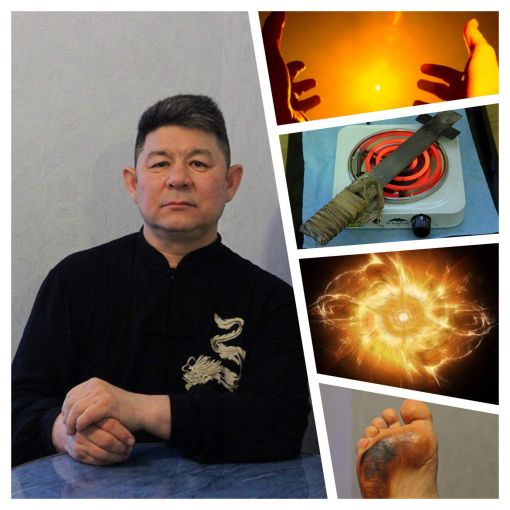MOROZOVA Galina Vladimirovna
19.00.07 – Age-related and Pedagogical Psychology.
Abstract for a PhD thesis
Relationships issue is one of the most global psychological problems, because the process of forming a personality sufficiently depends on the actual system of relationships with others he or she is included in. Our research the problem of development person’s attitude towards another person is studied in the context of broader problem of forming person’s subject activity. A person can act as a subject of activity, when human acts consciously, makes a choice in alternate situations, plans his activities. A person also can act as a subject of relationship, when human defines his attitude towards his surroundings. Personal subject activity can be directed to promoting outer world changes, in the same way, to promoting changes in the inner self. The issue of how child’s relationships towards other people (parents, friends, significant adults (including teachers)) develop within the scope of forming one’s subject activity is not studied enough, experts prefer to study specifics and efficiency of outer influence on the child and pay less attention to the child’s personality. Our work focuses on junior schoolchildren relationship towards teacher dynamics as an indicator of one’s subjectivity development.
Psychological research shows that links among subjects are very complicated. Subject relationships can function in different aspects. It is possible to differentiate subject-subject relationships into two aspects: evaluative and emotional. Evaluative aspect of subject attitude towards another one is based on specific view of one’s personal qualities and personality as a whole. While forming evaluative relationship towards another person, one like admits possibility and right of another person to be independent subject, possessing certain psychological and physical peculiarities, and evaluates that person, when that evaluation reflects this or that degree of one’s admittance. Emotional aspect of relationship “lies” deeper than evaluative, but exists simultaneously with that, and, moreover, is based on that. It includes the degree of other personality admittance, and also intimate-personal level of relationship, which acts as a unique expression of trusting relationship, prerequisite of readiness or unwillingness to make a “step” forward towards another subject, open him one’s inner soul, let other become participator of one’s personal life. We suppose that two described aspects of subject-subject relationships and their components not only exist simultaneously but can also be characterized by different types of ratios.
The research is focused on a pupil as an independent subject of relationship towards teacher as a socially significant person. The research is aiming at studying junior schoolchildren relationships peculiarities dynamics, opening of structural-dynamic aspects of child attitude teacher during one’s junior school age. The subject of research is junior schoolchild as a subject of association, possessing own view on partner of association, certain emotional and social expectations linked to the process of association.
For the first time systematic experimental research of structural-dynamic aspects of child attitude towards teacher during junior school age is realized.
It is revealed that attitude of junior school child towards teacher is a complicated psychological phenomenon, with its structure being divided into evaluative and emotional components; and each of them is characterized by certain indicators and undergoes strongly pronounced dynamics during junior school age. The evaluative component reflects the specifics of junior schoolchildren view on the teacher, his or her personal and professional qualities. The emotional component represents the degree of child admittance of the teacher, intimate-personal attitude towards him or her. Junior schoolchildren admittance of a teacher functions mostly in positive modality and increases by the upper border of age, at the same time, intimate-personal aspect of attitude is realized most often in negative modality and is characterized by increasing negative trends. The phenomenon of pupil “distancing” from the teacher at the intimate-personal level is determined as by teacher’s social position, potentially including a possibility of authoritarian effect on the child, as well as reducing interaction of children in junior school age. The novelty of the research is also connected to opening of junior schoolchildren structurally peculiar view on teacher’s role position, to defining the most valuable personal qualities of a teacher as factors determining the dynamics of their attitude towards teacher, to them.
The data received expand the view on child formation as a subject of association, let study one’s attitude towards another person (towards the teacher in our case) as a complicated establishment, functioning in different forms, which are determined by specifics of child’s view on other person, his or her inclinations and personal qualities value differentiation. The data of the research can be used in solving such problems of pedagogical and age-related psychology as self-realization development and subjectivity establishment while determining the factors optimizing child’s association. Methodical recommendations for teachers on studying junior schoolchild relationships are worked out, they are used in practice by Ulyanovsk State Pedagogical University and Ulyanovsk Teacher Development Institute .
For the first time systematic experimental research of structural-dynamic aspects of child attitude towards teacher during junior school age is realized.
It is revealed that attitude of junior school child towards teacher is a complicated psychological phenomenon, with its structure being divided into evaluative and emotional components; and each of them is characterized by certain indicators and undergoes strongly pronounced dynamics during junior school age. The evaluative component reflects the specifics of junior schoolchildren view on the teacher, his or her personal and professional qualities. The emotional component represents the degree of child admittance of the teacher, intimate-personal attitude towards him or her. Junior schoolchildren admittance of a teacher functions mostly in positive modality and increases by the upper border of age, at the same time, intimate-personal aspect of attitude is realized most often in negative modality and is characterized by increasing negative trends. The phenomenon of pupil “distancing” from the teacher at the intimate-personal level is determined as by teacher’s social position, potentially including a possibility of authoritarian effect on the child, as well as reducing interaction of children in junior school age. The novelty of the research is also connected to opening of junior schoolchildren structurally peculiar view on teacher’s role position, to defining the most valuable personal qualities of a teacher as factors determining the dynamics of their attitude towards teacher, to them.
The data received expand the view on child formation as a subject of association, let study one’s attitude towards another person (towards the teacher in our case) as a complicated establishment, functioning in different forms, which are determined by specifics of child’s view on other person, his or her inclinations and personal qualities value differentiation. The data of the research can be used in solving such problems of pedagogical and age-related psychology as self-realization development and subjectivity establishment while determining the factors optimizing child’s association. Methodical recommendations for teachers on studying junior schoolchild relationships are worked out, they are used in practice by Ulyanovsk State Pedagogical University and Ulyanovsk Teacher Development Institute .



